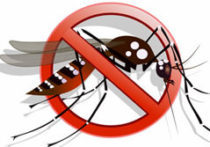It’s not enough that everyone has to think about COVID-19, it’s now the time of year that we must add West Nile Virus to our list of concerns.
The good news, according to the city of Garland website, is that the Garland Health Department has begun routine trapping at 27 locations per week and so far, no WNV human cases or positive traps have been confirmed.
Health Department trapping
Mosquito trapping occurs year-round but is increased during late spring and continues until mosquito activity decreases in early fall. The Health Department uses fixed sites for trapping locations instead of changing locations based on complaints as that approach has been proven to be more effective.
Reduce the chance of WNV by preventing mosquito bites
- Use insect repellent that contains DEET and be sure to follow label instructions.
- Do not apply repellent on skin covered by clothing.
- Wear loose, light-colored, long-sleeved shirts and pants when outdoors.
- Limit outdoor activities throughout the day. Mosquitoes can bite at any time.
For babies and children
- Dress children in long-sleeved shirts and pants.
- Cover strollers with mosquito netting.
- Follow label instructions on mosquito repellent and do not apply on the child’s hands, eyes, mouth, cuts or irritated skin.
- Read label instructions for appropriateness of repellent for children.
- Spray repellent on your hands and apply it to the child’s face.
Control mosquitoes indoors
- Use air conditioning if available.
- Keep screens on windows and doors.
- Use an indoor insect fogger or indoor spray to treat areas where mosquitoes rest – dark, humid places like under sinks, in closets, under furniture or in the laundry room.
- These products work immediately and may need to be reapplied.
- When using insecticides, follow label directions.
Control mosquitos outdoors
- Frequently check flower pots, birdbaths, clogged gutters, buckets, old tires, toys, etc. for standing water.
- Containers that hold just one inch of water can breed mosquitoes.
- Tightly cover water storage containers.
- If you need help eliminating standing water, call 972-205-3720 or make a report through the Garland eAssist app.
- Use an outdoor insect spray made to kill mosquitoes in areas where they rest – dark, humid areas like under patio furniture or under the carport or garage.
Spraying
Most spraying is done between 9 p.m. and 6 a.m. when most residents are inside and the city uses one chemical when spraying for mosquitoes, Envion 30-30 (PDF). The chemical is diluted with water before application. The active ingredient is permethrin. Spraying begins when notification of a positive mosquito trap or human case of WNV is received.
Symptoms
- Eight of 10 people infected with WNV do not develop symptoms.
- About one in five develop a fever, possibly with headache, body aches, joint pains, vomiting, diarrhea or rash. Most people with this type of WNV recover completely, but fatigue and weakness can linger for weeks or months.
- About one in 150 people a severe illness affecting the central nervous system. Symptoms include high fever, headache, neck stiffness, disorientation, coma, tremors, convulsions, weakness, vision loss, numbness and paralysis. This type can occur in people of all ages but is more common in those over 60 and in those with other chronic conditions. Recovery from this type of infection can take weeks or months. Some effects could be permanent. About one in 10 people who develop this type of WNV die.
Sources: www.garlandtx.gov, www.cdc.gov


